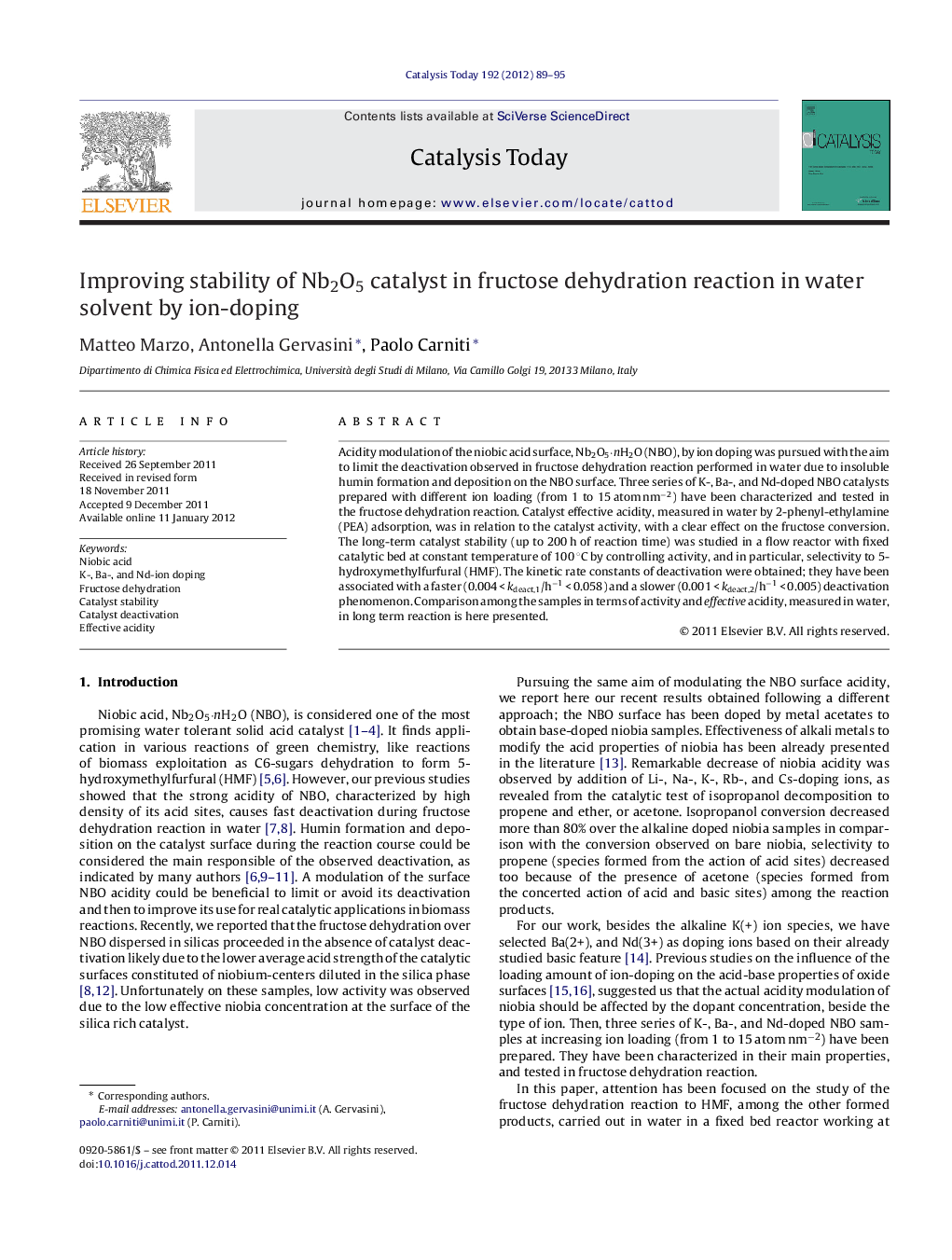| Article ID | Journal | Published Year | Pages | File Type |
|---|---|---|---|---|
| 55159 | Catalysis Today | 2012 | 7 Pages |
Acidity modulation of the niobic acid surface, Nb2O5·nH2O (NBO), by ion doping was pursued with the aim to limit the deactivation observed in fructose dehydration reaction performed in water due to insoluble humin formation and deposition on the NBO surface. Three series of K-, Ba-, and Nd-doped NBO catalysts prepared with different ion loading (from 1 to 15 atom nm−2) have been characterized and tested in the fructose dehydration reaction. Catalyst effective acidity, measured in water by 2-phenyl-ethylamine (PEA) adsorption, was in relation to the catalyst activity, with a clear effect on the fructose conversion. The long-term catalyst stability (up to 200 h of reaction time) was studied in a flow reactor with fixed catalytic bed at constant temperature of 100 °C by controlling activity, and in particular, selectivity to 5-hydroxymethylfurfural (HMF). The kinetic rate constants of deactivation were obtained; they have been associated with a faster (0.004 < kdeact,1/h−1 < 0.058) and a slower (0.001 < kdeact,2/h−1 < 0.005) deactivation phenomenon. Comparison among the samples in terms of activity and effective acidity, measured in water, in long term reaction is here presented.
Graphical abstractFigure optionsDownload full-size imageDownload high-quality image (120 K)Download as PowerPoint slideHighlights► The catalytic performances of niobic acid (NBO) and relevant doped catalysts obtained by addition of variable amount of K, Ba, and Nd in the dehydration of fructose reaction in aqueous solvent were presented. ► The long-term catalyst stability was studied with determination of the kinetic rate constants of deactivation; stability of doped catalysts was better than that of bare NBO. ► Catalyst effective acidity, measured in water by PEA (2-phenyl-ethylamine) adsorption, was in relation to the catalyst activity, with a clear effect on the fructose conversion.
